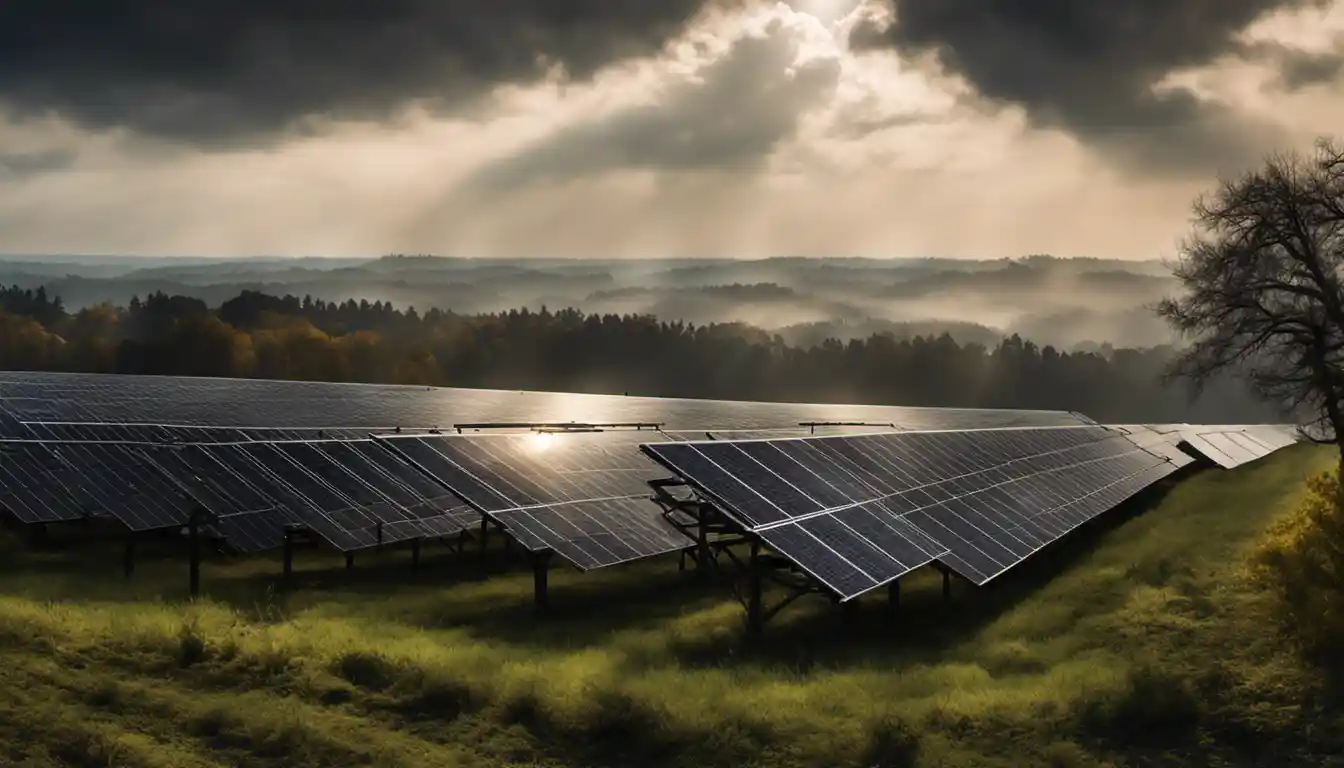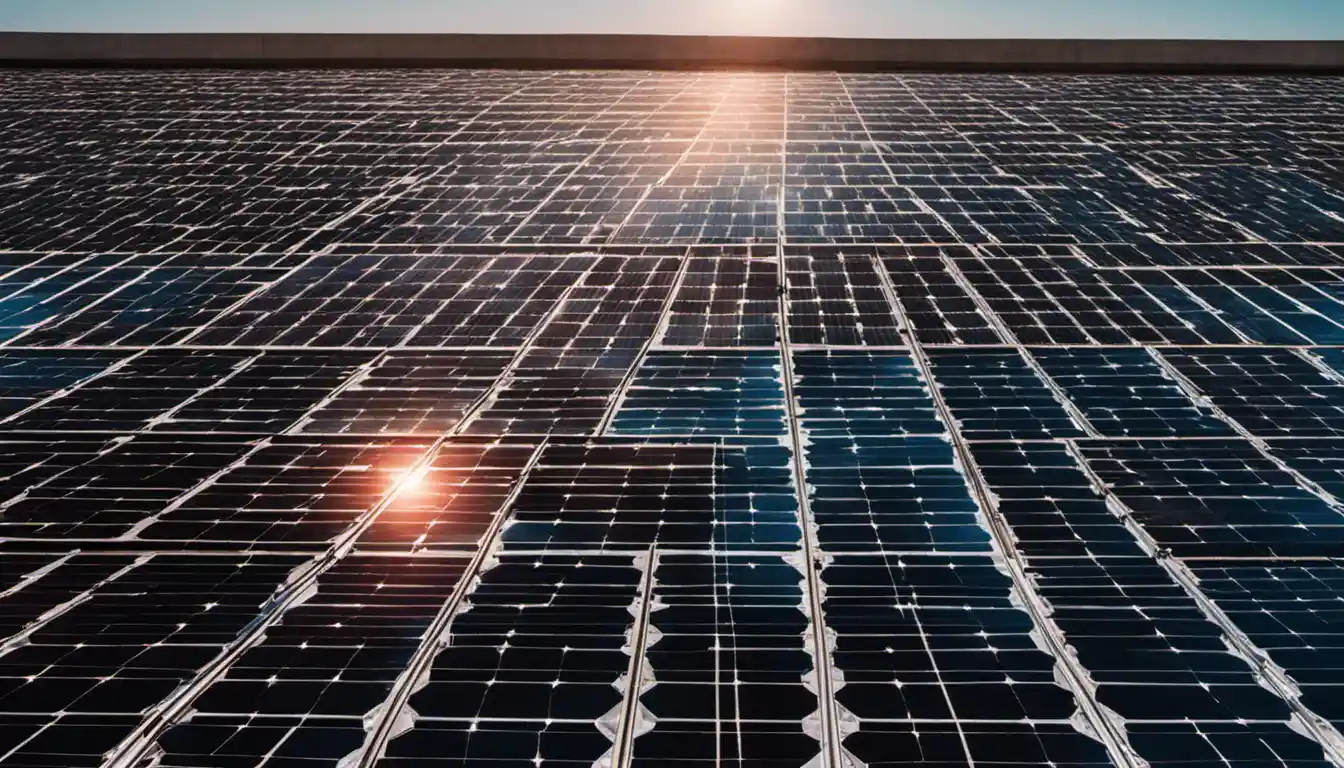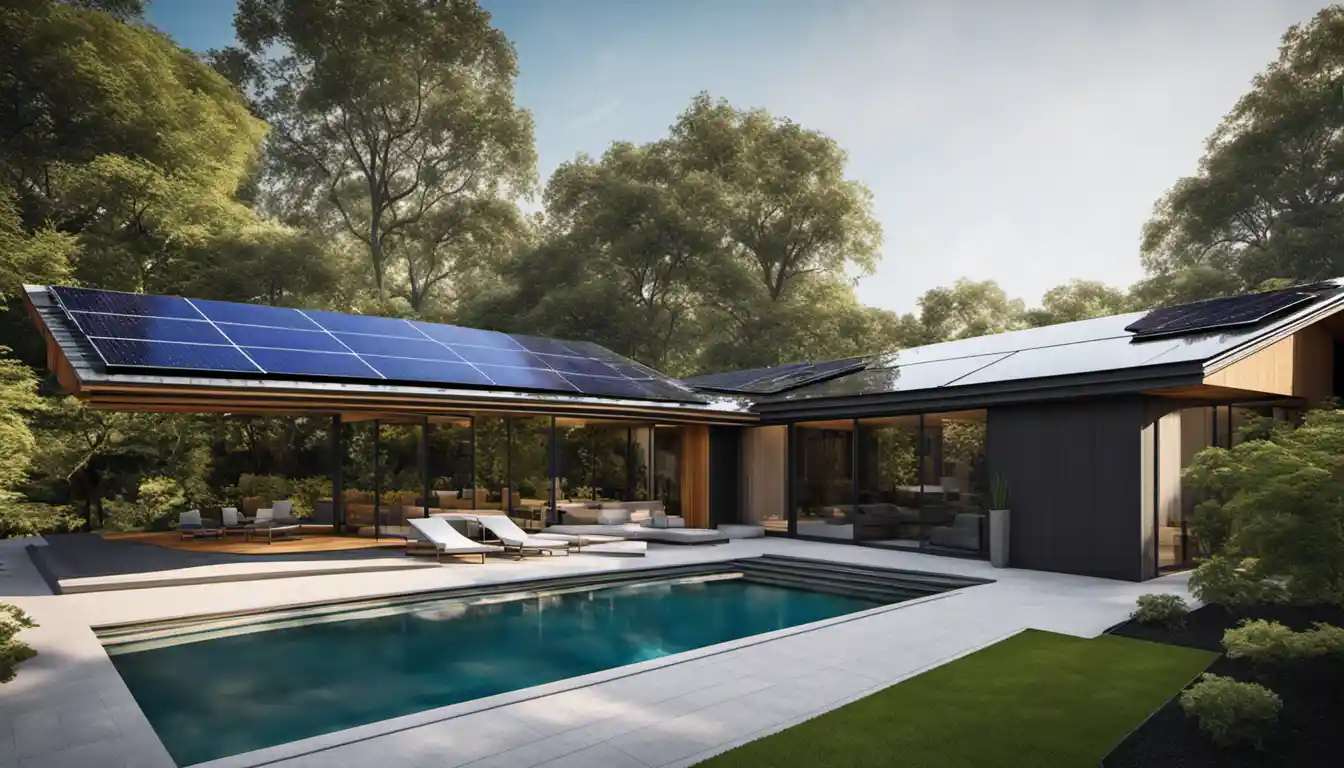Understanding the Photovoltaic Process
Solar panels require sunlight to produce energy, so their efficiency significantly decreases in the shade. However, they don’t stop working entirely, but the energy output they can generate will be much lower compared to the output in full sunlight.
Before delving into how shade affects solar panels’ performance, let’s break down how these marvels of technology work. Sunlight is composed of tiny energy particles called photons that our solar panels effectively capture.
Basics of Photon Capture
When these photons hit the solar panels, they knock electrons loose from their atoms. This process, known as the photoelectric effect, sets the stage for energy production. It creates an electrical circuit through which the electrons can travel, generating a current. Remember though, not all photons carry the same energy – different wavelengths mean different energy levels. A sunny day provides a perfect cocktail of diverse photons, leading to high output.
Conversion of Sunlight to Electricity
The conversion of sunlight to electricity is no magic. Solar panels consist of many small units called photovoltaic (PV) cells that do the heavy lifting. These PV cells convert the kinetic energy of the displaced electrons to direct current (DC) electricity. Later, an inverter transforms it into alternating current (AC), the form of electricity needed to power the appliances in your home.
Impacts of Different Weather Conditions on Solar Panels
Weather conditions play a massive role in determining the efficiency of solar panels. Right from cloudy days where the sunlight gets diffused, to snowy days when the panels can get covered entirely, let’s unveil the truth behind how extreme weather affects the efficiency of solar panels.
For a more detailed look, check out: /how-does-weather-affect-solar-panels.
Cloudy Days and Solar Panels

If you’ve ever wondered “do solar panels work on cloudy days?”, brace yourself for a surprise. Yes, they do! Clouds can diffuse sunlight but can’t block it entirely. While output may reduce, remember things could be worse – just think of our friends in the shade!
Rain’s Effect on Solar Panels
You might ask, “If solar energy comes from the sun, then how would it survive the water?” Interestingly, rain is beneficial for your solar panels. While they will make less energy when it is raining, the water naturally cleans them and maintains their maximum efficiency.
How Snow Impacts Solar Panels
Snow can usually slide off due to the angle at which solar panels are installed. But when it doesn’t, it covers the panels and blocks the sunlight. Thankfully, removing snow is usually quite straightforward, and once it’s gone, your panels will be back in business.
Solar Panels in Extreme Weather: Hot and Cold Temperatures
Contrary to popular belief, solar panels actually perform better under cold, sunny conditions than on hot, sunny days because excessive heat can reduce power output.
The Influence of Shade on Solar Panels

So, we’ve danced around it, but it’s time for the main question: “will solar panels work in the shade?” The short answer: Yes, to some extent, but they are significantly less efficient.
Amount and Duration of Shade
Solar panels do need sunlight to produce their rated power, so direct shading will reduce their output. The amount and duration of shade on your panels significantly affect their performance.
Impact of Shade on Solar Panel Efficiency
Each solar panel is made up of a series of interconnected cells. If even one of these cells is shaded, it can affect the whole system’s output. It’s akin to the old adage, a chain is only as strong as its weakest link.
Types of Inverters and Their Performance in Shade
The inverter’s role in a solar panel system is crucial. A traditional string inverter will perform poorly in shade as it draws power from a series of panels. If even one panel is underperforming due to shade, the whole system suffers.
On the other hand, microinverters and power optimizers, often called Module-level Power Electronics (MLPEs), can mitigate this. They are attached to each solar panel, allowing them to function independently. This system makes shaded solar panels less of a problem, as each panel’s output does not affect others.
Optimization of Electricity Production in Shaded Conditions

Engineer as we might, shade is sometimes unavoidable. But all is not lost! Custom solar power systems and smart utilization of solar batteries can make a world of difference.
Custom Solar Power Systems
When designing your solar power system, a professional can assess the structure of your roof and surrounding areas to minimize the impact of shade. They can plan the layout of your panels to avoid shaded areas or use MLPEs for the best performance possible.
Utilization of Solar Batteries
Solar batteries store excess power your solar panels produce. When your panels are under shade and not performing to their capacity, these batteries can supply stored power, minimizing your reliance on the grid.
Determining if Solar is the Right Fit for Your Home
The myth that you need a fully sunlit roof for solar panels to work efficiently has been debunked. Yes, consistent shading will decrease solar panel performance, but expert installation techniques and equipment selection can minimize the impacts.
Concluding Thoughts: Smart Decision in Favor of Solar Power
Plenty of factors come into play when you’re deciding whether or not to go solar. “Will solar panels work in the shade?” is indeed one such essential question. The answer isn’t black and white, but the grey area isn’t necessarily a deal-breaker. Remember that solar panels can also function in less than optimal conditions and with improvements in technology, they are only going to get better.
This journey into the world of solar panels and shade should hopefully shed some light (pun intended) on this complex issue. Solar power remains a viable, eco-friendly solution that, even when the panels are in the shade, can still add a sparkle to your green credentials!



